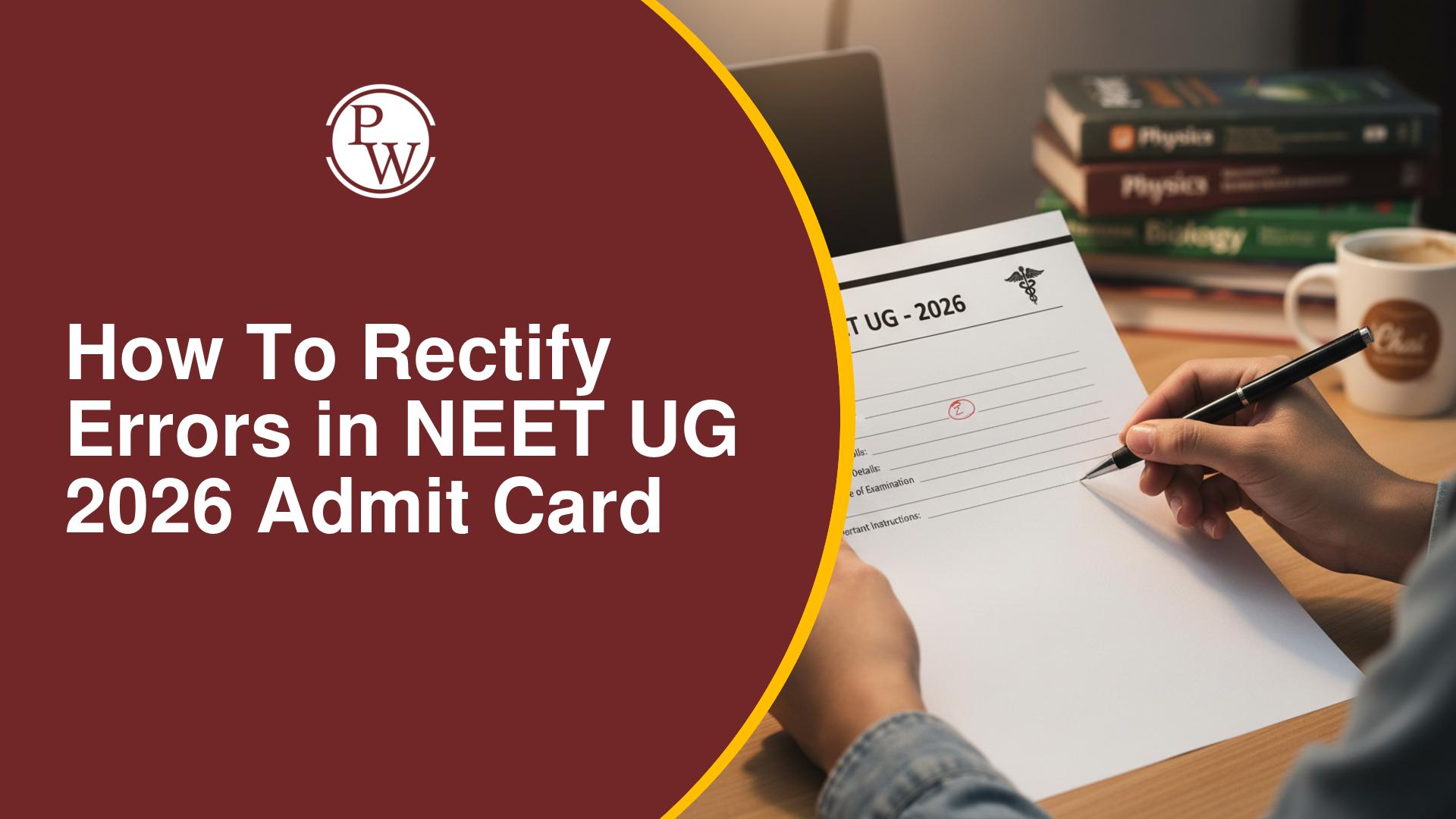
How Many Months Are Enough For NEET 2025 Preparation: The National Eligibility cum Entrance Test (NEET) is one of the most competitive exams for students aspiring to pursue medical courses in India. The preparation for NEET 2025 requires dedication, focus, and a well-organized plan. Students often wonder, "Is it possible to prepare for NEET in 5 months?" The answer is yes —with a strategic and disciplined approach, 5 months is enough to cover the syllabus, practice effectively, and achieve success in NEET.
This article provides a comprehensive 5-month preparation plan, emphasizing how students can utilize this limited time to cover the vast NEET syllabus, strengthen their concepts, and perform well in the exam. Let's explore the ideal study strategy and essential tips for a focused 5-month NEET preparation journey.How Many Months Are Enough For NEET 2025 Preparation?
The time required for NEET preparation varies based on factors like a student’s current knowledge, familiarity with the syllabus, and study habits. For many aspirants, 5 months of focused preparation can be sufficient, provided they follow a disciplined and strategic approach. Others with prior knowledge may require less time but must remain consistent and thorough in their studies. Determining the right preparation duration helps students plan a realistic schedule, ensuring they cover all topics comprehensively, practice extensively, and focus on their weak areas to maximize their chances of success in NEET 2025.NEET Study Material, Free Sample Papers, Book, Toppers Notes, PYQs
Ideal Timeframe for NEET Preparation
For most students, 5 months of preparation is considered ideal for NEET. This gives you enough time to cover the syllabus thoroughly, revise important concepts, and practice with mock tests and previous years' papers. A year-long preparation allows you to approach each subject in-depth, ensure that you understand the fundamentals, and develop problem-solving skills. However, if you have less than a year, such as 5 months, you can still prepare for the exam, but it will require a focused and intense study routine. The key is to prioritize your preparation, focus on important topics, and manage your time effectively.Also Check:
Factors Affecting Preparation Duration NEET UG 2025
Several factors influence how much time you need to prepare for NEET. These include:- Time Availability: The more time you have, the better you can plan your preparation. A longer preparation period allows for thorough coverage of topics, while a shorter timeline requires focused, intensive study.
- Prior Knowledge: Your understanding of the subjects influences how much time you need. Strengths in certain areas can allow more time for weaker subjects.
- Study Plan and Discipline: A structured plan helps organize your study time effectively. Consistency and discipline in following the plan are critical to staying on track.
- Consistency in Practice: Regular practice with mock tests and problem-solving builds accuracy and speed, essential for NEET success.
- Study Material and Resources: Use reliable resources like NCERT books and practice materials to strengthen your concepts and enhance problem-solving skills.
- Guidance and Coaching: Coaching can provide structured learning, while self-study with online resources can also be effective, depending on your preference.
- Mental and Physical Health: Good health and stress management are crucial. Regular breaks, sleep, and exercise help maintain focus and energy levels.
- Time Management: Effective time management ensures balanced study and regular revision. Prioritize tasks to cover all subjects effectively.
- Mock Tests and Performance Analysis : Mock tests simulate exam conditions and help assess progress. Analyzing performance after each test identifies areas for improvement.
- Peer Support and Motivation: Study groups and family support help maintain motivation and provide assistance in overcoming challenges.

Preparation Plan for 5 Months
Preparing for NEET requires a systematic approach, and the time available plays a crucial role in how well you can manage your preparation. Here’s a well-structured plan for those who have 5 months for NEET preparation:First 2 Months: Build a Strong Foundation
- Focus on Basics: Begin by thoroughly understanding the fundamental concepts in Physics, Chemistry, and Biology. Focus on gaining a clear understanding rather than rushing through topics.
- Use NCERT as Your Core Material: NCERT textbooks should be your primary resource for all three subjects. Ensure you study each chapter from these books thoroughly.
- Create a Daily Study Routine: Dedicate at least 6–8 hours per day to studying. Divide your time evenly among Physics, Chemistry, and Biology, ideally spending 2 hours on each subject.
- Prioritize Topics : Focus on high-weightage topics such as Genetics in Biology, Electrostatics in Physics, and Chemical Bonding in Chemistry. Also, create concise notes for each chapter to aid in revision later.
Also Check:
Next 2 Months: Practice and Problem-Solving
- Complete the Syllabus: Ensure that the entire syllabus is completed by the end of the fourth month. Use reference books like HC Verma for Physics, OP Tandon for Chemistry, and question banks for Biology to enhance your preparation.
- Solve Previous Year Papers: Begin solving previous years’ NEET question papers. Analyze your performance to identify weak areas and focus on improving them.
- Take Regular Mock Tests: Start taking weekly mock tests under timed conditions. This will help you familiarize yourself with the exam pattern and improve your time management.
- Improve Time Managemen t: Gradually work on reducing the time taken to solve each question. Practice solving problems more quickly without compromising accuracy.
Focus Areas in the Final Month s
In the final months leading up to NEET, here are some areas you must focus on:- Revision of Important Topics: Focus on high-weightage topics in Biology like Human Physiology, Plant Physiology, Genetics, and Ecology. For Chemistry, focus on Organic Chemistry and Inorganic Chemistry.
- Focus on Weak Areas: Identify your weak areas during the mock tests and revise those topics thoroughly. Avoid starting any new chapters during this time.
- Mock Tests: Take mock tests every week, and analyze them to understand your weak areas. This will help you improve time management and accuracy.
- Health and Mental Preparation : In the final months, make sure you maintain a balanced routine. Get enough sleep, exercise regularly, and eat healthy. Mental preparation is key to staying calm and focused during the exam.
How Many Months Are Enough For NEET 2025 Preparation FAQs
Q. Is 7 months enough for NEET preparation in 2025?
Ans. Yes, 7 months can be enough if you follow a focused and disciplined study plan. It is important to cover all subjects thoroughly, practice regularly, and maintain consistency during this period.
Q. How many months are left for NEET 2025?
Ans. As of now, there are approximately 7-8 months remaining until the NEET 2025 exam, depending on the exact date of the exam. This provides enough time for preparation with a well-structured plan.
Q. How do I start preparing for NEET 2025?
Ans. Start by understanding the NEET syllabus and focusing on core subjects—Physics, Chemistry, and Biology. Create a study timetable, prioritize topics, and practice regularly with mock tests and previous year papers.
Q. Can I crack NEET 2025 if I start now?
Ans. Yes, with dedication and a smart study plan, cracking NEET 2025 is possible. Focus on building a strong foundation, practicing regularly, and staying disciplined throughout your preparation.
Talk to a counsellorHave doubts? Our support team will be happy to assist you!

Check out these Related Articles
Free Learning Resources
PW Books
Notes (Class 10-12)
PW Study Materials
Notes (Class 6-9)
Ncert Solutions
Govt Exams
Class 6th to 12th Online Courses
Govt Job Exams Courses
UPSC Coaching
Defence Exam Coaching
Gate Exam Coaching
Other Exams
Know about Physics Wallah
Physics Wallah is an Indian edtech platform that provides accessible & comprehensive learning experiences to students from Class 6th to postgraduate level. We also provide extensive NCERT solutions, sample paper, NEET, JEE Mains, BITSAT previous year papers & more such resources to students. Physics Wallah also caters to over 3.5 million registered students and over 78 lakh+ Youtube subscribers with 4.8 rating on its app.
We Stand Out because
We provide students with intensive courses with India’s qualified & experienced faculties & mentors. PW strives to make the learning experience comprehensive and accessible for students of all sections of society. We believe in empowering every single student who couldn't dream of a good career in engineering and medical field earlier.
Our Key Focus Areas
Physics Wallah's main focus is to make the learning experience as economical as possible for all students. With our affordable courses like Lakshya, Udaan and Arjuna and many others, we have been able to provide a platform for lakhs of aspirants. From providing Chemistry, Maths, Physics formula to giving e-books of eminent authors like RD Sharma, RS Aggarwal and Lakhmir Singh, PW focuses on every single student's need for preparation.
What Makes Us Different
Physics Wallah strives to develop a comprehensive pedagogical structure for students, where they get a state-of-the-art learning experience with study material and resources. Apart from catering students preparing for JEE Mains and NEET, PW also provides study material for each state board like Uttar Pradesh, Bihar, and others
Copyright © 2026 Physicswallah Limited All rights reserved.









